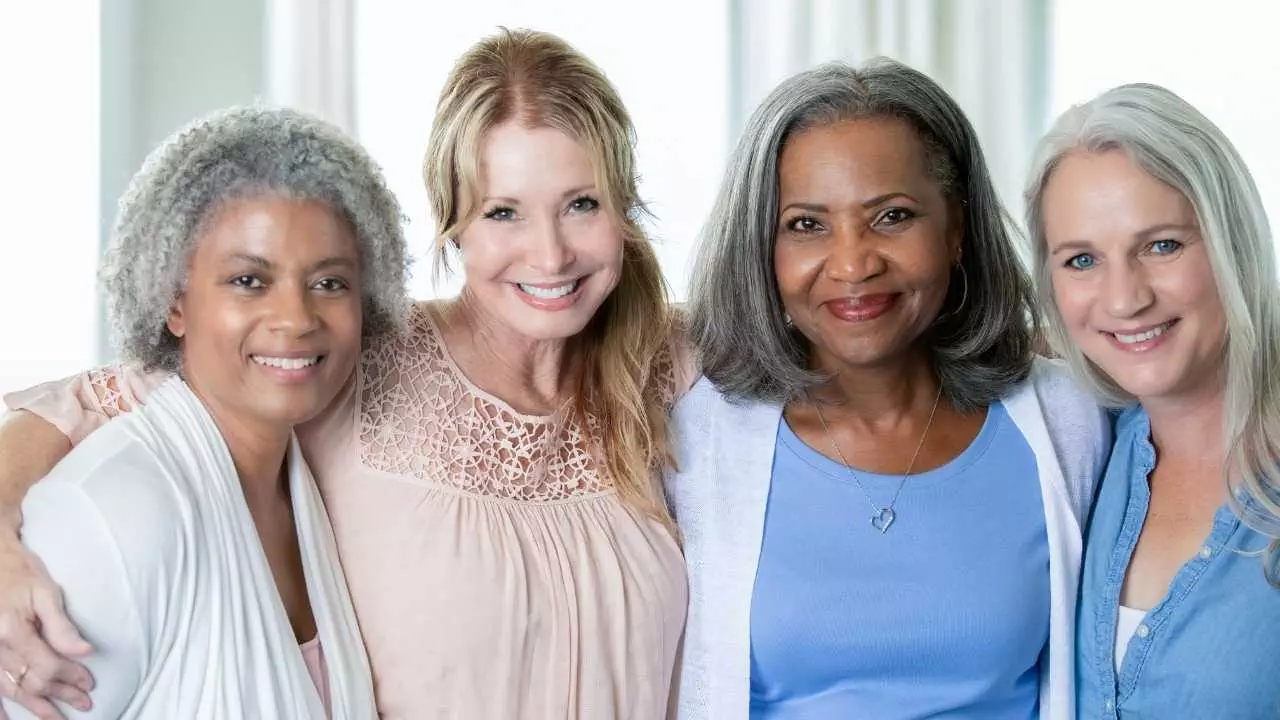Table of Contents
Seniors have much to offer society, and volunteering is a powerful way to make a mark. Your years of experience are invaluable, and when you volunteer, you help others and make our world better.
Joining a nonprofit can let you be part of something bigger that really helps people in need. When you volunteer in your community, you can see how your work makes a real difference. Sharing your professional skills can help lay the groundwork for future successes.
If you care about the environment and volunteer for green causes, you’re helping protect our Earth for future generations. Mentoring young people can help them grow into tomorrow’s leaders. In healthcare, your time and care can make someone’s day better.
Planning events can spark important conversations and joy. Preserving our cultural history ensures that future generations can learn from it. Each type of volunteer work offers its way to leave a lasting, positive impact.
Key Takeaways
- Seniors can make a significant impact on their communities by joining nonprofit initiatives and using their lifetime skills for the betterment of society.
- Sharing professional expertise with local organizations and providing guidance to young entrepreneurs or nonprofits can help seniors profoundly impact the community and individuals.
- Championing environmental causes through education, advocacy, and volunteering allows seniors to leave a legacy of respect for nature and instill environmental values in others.
- Mentoring the next generation by sharing life skills, offering career guidance, and fostering emotional growth can profoundly and positively impact young individuals.
Joining Nonprofit Initiatives
Nonprofit organizations offer you diverse opportunities to leverage your lifetime of skills for community betterment. Your wealth of experience is invaluable, and through creative workshops, you can pass on your knowledge in arts, crafts, or even financial literacy.
Imagine inspiring others with your passion and wisdom, kindling creativity in intergenerational settings that build community connections and foster personal growth.

Furthermore, embarking on policy advocacy is a powerful way for you to ensure that your voice and the voices of your peers are heard. Your insights can influence decisions that affect your community, leading to meaningful change.
By advocating for policies that promote senior welfare, education, or the environment, you become a beacon of change, guiding society toward a more inclusive and just future.
Your contributions through nonprofits don’t just end with your active participation. The ripple effect of your involvement extends far beyond the immediate outcomes. You’re serving others and setting a precedent for generations to come, embodying the spirit of giving and reinforcing the fabric of society.
Step into this role with confidence, knowing that your efforts are a testament to the power of shared human experience and the collective will to do good.
Engaging in Community Service
While you’re making a difference with nonprofits, you can also dive into community service, where your hands-on help meets the immediate needs of your neighbors and local organizations. Community service is a powerful way to connect with others and make tangible improvements in your area. It’s not just about giving back; it’s about building a legacy of care and support that resonates throughout your community.
Here’s how you can get involved:
Local Cleanups
- Beautify parks and beaches: Organize or join groups dedicated to collecting litter and maintaining natural spaces.
- Revitalize public spaces: Help paint community centers, plant gardens, or improve playgrounds to create welcoming areas for all.
Neighborhood Watch
- Increase safety: Collaborate with law enforcement to monitor and report suspicious activities, helping to reduce crime rates.
- Foster community ties: Use the opportunity to get to know your neighbors better, creating a network of mutual support and vigilance.
Your experience and wisdom are invaluable assets in these efforts. By engaging in community service, you’re enhancing your surroundings and inspiring others to follow suit. It’s a meaningful way to show that you care and want to leave a positive mark on the world around you.

Through sharing your professional expertise, you’re equipping local organizations with the skills and knowledge they need to thrive.
Whether it’s through delivering expert lectures or providing business consulting, your involvement can profoundly impact those around you.
Your years of experience in your field are invaluable, and by choosing to volunteer, you are not only giving back but also paving the way for future generations.
Imagine the difference you can make by mentoring young entrepreneurs or guiding nonprofits with strategic planning. Your insight could very well be the catalyst for growth and success in these organizations. Let’s take a look at how your contributions can affect your community and the individuals within it.
| Emotion Evoked | Impact of Your Expertise |
|---|---|
| Inspiration | Youth inspired by your expert lectures |
| Gratitude | Nonprofits grateful for pro bono business consulting |
| Hope | Struggling businesses hopeful after your advice |
| Empowerment | Volunteers empowered by your training sessions |
| Joy | Community joy from the success you helped foster |
Championing Environmental Causes
As you share your professional expertise, you can also turn your attention to championing environmental causes, where your efforts can significantly benefit our planet’s health and sustainability. You know the value of a thriving ecosystem and each individual’s role in its preservation. Your wisdom and life experiences are invaluable when it comes to teaching others about the importance of environmental stewardship.
Green Gardening
- Educate community members about sustainable gardening practices
- Participate in local park cleanups and tree-planting events
By engaging in green gardening, you help promote biodiversity and support pollinators crucial to our food supply.
Wildlife Conservation
- Advocate for the protection of local habitats
- Volunteer at wildlife sanctuaries or nature centers
Meanwhile, your efforts in wildlife conservation ensure that future generations can enjoy and learn from the rich array of species that our planet is home to.
It’s about leaving a legacy of respect for nature and instilling those values in others. You’re not just giving back; you’re paving the way for a greener, more sustainable future.
Mentoring the Next Generation
You’ll often find that sharing your knowledge and experiences through mentoring can make a profound difference in the lives of younger individuals. Your lifetime of wisdom is a treasure trove for youth empowerment, fostering confidence and skills in the next generation.
By offering guidance, support, and encouragement, you’re not just passing on knowledge; you’re building intergenerational relationships that enrich both your life and those of the mentees.

Mentoring goes beyond the simple transfer of skills—it’s about inspiring young people to set higher goals and believe in their capabilities. As a senior, you have the unique opportunity to serve as a role model, showing by example how to navigate life’s challenges with grace and resilience.
Here’s a snapshot of how you can engage in mentoring:
| Benefit | Example Activity |
|---|---|
| Sharing Life Skills | Financial literacy classes |
| Offering Professional Insight | Career guidance sessions |
| Cultivating Talents | Arts and crafts workshops |
| Fostering Emotional Growth | One-on-one support meetings |
Assisting in Healthcare Settings
You can play an essential role in hospitals and clinics by volunteering to help care for patients. Your volunteer work helps comfort those sick and supports the medical staff, who often have a lot on their plates.
You can do things like share health information with patients or take on various tasks in the hospital. Your efforts are valuable because they contribute to the well-being of patients and the smooth running of healthcare facilities.
For example, by helping to organize patient records, you can save nurses a lot of time, allowing them to focus more on patient care. Your willingness to help can bring a sense of ease to a fast-paced environment, which is crucial for both patients and healthcare workers.
Patient Care Support
One can make a significant impact by volunteering in patient care support roles at local hospitals and clinics, providing comfort and assistance to those in need. Your presence can offer elder companionship and emotional support, vital for holistic healing.

Here’s how you can get involved:
Elder Companionship
- Sharing stories and listening
- Engaging in gentle activities like puzzles or reading
Emotional Support
- Holding a hand during difficult times
- Offering a compassionate ear for concerns
Your empathy and time are priceless gifts that can brighten a patient’s day and aid recovery. By stepping into these roles, you’re not just volunteering but enriching lives with your wisdom and kindness.
Hospital Volunteer Roles
Building on the compassion demonstrated in patient care support, volunteering in healthcare settings expands your ability to impact individual lives and the well-being of your community.
As a hospital volunteer, you’ll find that your presence can be a beacon of comfort and assistance in a bustling healthcare environment.
Your role may include providing wheelchair assistance to patients who need help navigating the facility. This simple support can significantly ease a patient’s journey, offering physical aid and a friendly conversation.
Health Education Assistance
Diving into health education assistance, you’ll harness your experience to inform patients about managing their conditions and maintaining healthy lifestyles. Your wealth of knowledge can make a profound impact, especially when you engage in:
- Senior nutrition
- Educating peers about balanced diets
- Leading meal-planning sessions
- Wellness workshops
- Facilitating discussions on physical activity
- Sharing strategies for mental well-being
You’re not just volunteering; you’re empowering others with the tools they need for a healthier life. Remember, your guidance can be the cornerstone of someone’s journey to wellness.
Planning and Hosting Events
Through planning and hosting community events, you’ll not only enrich your social life but also provide invaluable experiences for your neighbors. It’s a chance to bring people together, fostering connections and joy.
Your seasoned perspective is key in orchestrating events that resonate with a wide audience.

Event promotion is crucial; it ensures that the hard work poured into organizing is met with eager participation. Utilize local bulletin boards, social media, and word of mouth to spread the word.
Venue coordination is another vital piece of the puzzle. You’ll need to find a space that accommodates your event’s size and accessibility needs. Think about parking, seating, and facilities. Liaising with venue managers to secure dates and understand logistical requirements will be part of your role.
Your organizational skills, patience, and empathy equip you perfectly for this endeavor. Remember, you’re creating more than just an event; you’re crafting memories and building community spirit. So, dive into the planning with enthusiasm.
Be ready to adapt and solve problems as they arise. Your contribution through these events is a testament to the enduring impact seniors can have on society.
Safeguarding Cultural Heritage
Your experience is precious for protecting our cultural heritage. When you work in museums, you’re not just doing a job; you’re helping to keep our shared history alive by looking after the stories and objects that tell us who we are. You’re also playing a critical role in keeping traditional skills from disappearing.
By teaching others these skills, you ensure they survive for future generations to enjoy and learn from.
For example, if you’re skilled in traditional woodworking, you could lead workshops or create educational programs in a local museum. This way, people can see these techniques in action, understand their significance, and maybe even learn to do them themselves.

Your expertise doesn’t just maintain these practices; it breathes new life into them, which is essential for cultural preservation.
Museum Volunteer Roles
As a senior, by volunteering at museums, you’ll play a pivotal role in preserving the threads of our cultural tapestry for future generations. Your experience and dedication are invaluable in various roles:
Artifact cataloging
- Systematically recording and organizing historical items.
- Ensuring accurate data for research and exhibitions
Visitor orientation
- Guiding guests through galleries
- Sharing stories behind exhibits to enrich their experience
Your commitment to these tasks safeguards our heritage and educates and inspires others. By contributing your time, you become a guardian of history, a noble and deeply appreciated role by the community.
Embrace this opportunity to leave a lasting imprint on the cultural landscape.
Traditional Skills Preservation
By mastering traditional skills, you’re helping keep a vital part of our cultural heritage alive for generations. Your hands weave not just materials but also the stories and wisdom of the past. Picture yourself at craft workshops, patiently teaching younger participants how to create beauty as your ancestors did.
It’s not just about the techniques but also the tales and values that come with them.

At heritage festivals, your presence as a volunteer becomes a bridge connecting the community to its roots. You’re not just preserving a skill; you’re safeguarding the torch of culture that’s passed from one age to the next.
Embrace this role with pride, knowing you’re ensuring that the future can always find its way back to the wisdom of the past.
Frequently Asked Questions
How Can Seniors With Limited Mobility Engage in Volunteer Work That Makes a Significant Impact on Society?
Seniors with limited mobility can still have a big impact by volunteering from home. They can use technology like computers and the Internet to share their skills. This might involve mentoring someone or teaching something they know well.
By doing this, they help others and stay active in their community despite being unable to move around easily.
For example, a retired teacher could tutor students in math over a video call, or a former engineer might advise a startup through online sessions. This way, seniors can pass on their knowledge and experience, which is really valuable.
What Opportunities Are Available for Seniors Who Want to Volunteer Remotely From Home?
Older adults can make a real difference by volunteering from home. For example, you can help young people learn by becoming a virtual tutor, using your life experience to guide them.
Or you can support important social issues by getting involved in online advocacy. This is a way to give back to the community without leaving your house. You’ll be able to use the knowledge and experience you’ve gained over the years to help others.
Plus, these remote volunteering opportunities often provide flexible hours, allowing you to make a meaningful contribution on your own schedule.
Are There Specific Volunteer Programs Tailored for Seniors Dealing With Cognitive Impairments, Like Early-Stage Dementia?
Certainly, there are volunteer opportunities specifically crafted for older adults with early-stage dementia. These programs are important because they offer activities that help maintain mental sharpness, such as tasks that challenge memory and problem-solving skills. By participating, seniors can contribute to their community while also engaging in valuable cognitive exercises.
For instance, a program might involve seniors in organizing community events requiring planning and recall abilities, providing a dual benefit of service and mental engagement. These carefully designed activities support seniors in staying mentally active and socially connected, which are key factors in managing cognitive health.
How Can Non-English Speaking Seniors Find Volunteer Opportunities Where Language Barriers Won’t Be an Issue?
If you’re an older person who speaks a language other than English, you can still find great ways to volunteer. Look for programs that focus on cultural exchange or help with language education. In these settings, being able to speak your native language is a big plus.
It means you can help others learn your language and understand your culture, which is really valuable. So, your language skills become a helpful tool, not something that gets in the way of volunteering.

Can Seniors Who Are Financially Constrained Receive Any Subsidies or Support to Help Them Participate in Volunteer Activities That Require Travel or Other Expenses?
If you’re a senior with limited funds but want to volunteer, help is available. You might be able to get money back for travel costs or receive special funds to help you volunteer without worrying about expenses.
It’s a good idea to reach out to community groups or senior centers in your area because they often have programs to help you give back to the community without costing you. This is crucial because it allows everyone, regardless of their financial situation, to contribute to their community and gain the personal satisfaction of volunteering. These programs can also connect you with other volunteers, which is a great way to make new friends.
Our Final Thoughts
To wrap up, your efforts in volunteering really matter. You make a big difference when you give your time to help others. This could be by sharing your knowledge with a young person, helping to grow a garden, or being part of local events.
Your help is priceless. Giving time to others strengthens our community and adds meaning to your life too.
Why not start now? Be the inspiration for the changes you’d like to see around you.
















